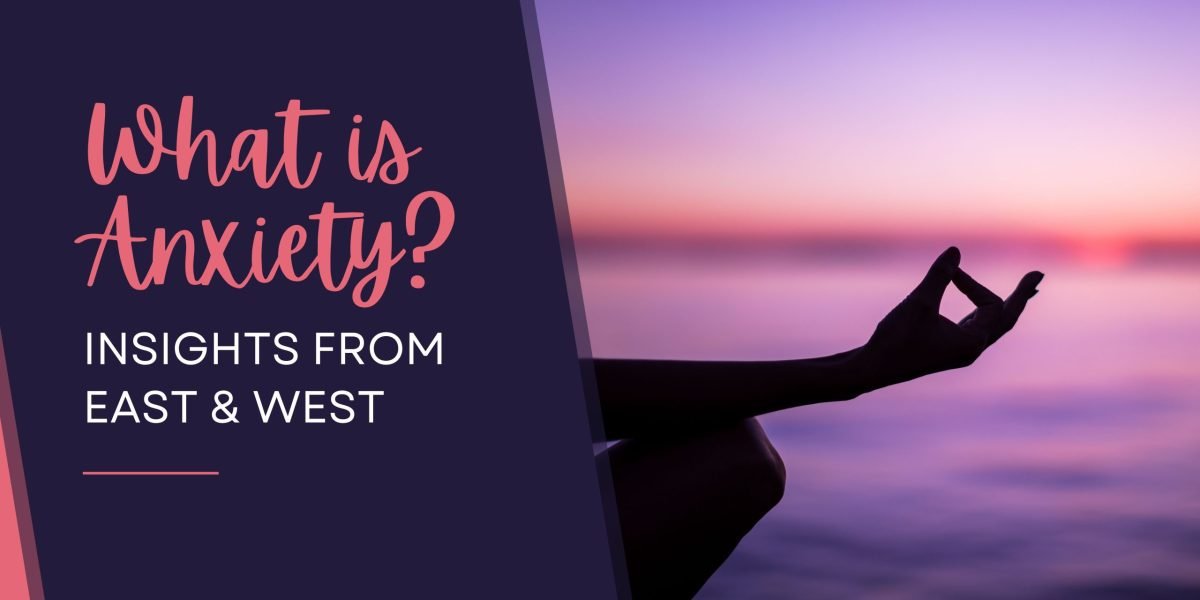What is Anxiety? Insights from East & West
Anxiety disorders are the most common mental health condition in the US.
Despite very different medical terminology used by Eastern and Western practitioners, there are significant overlaps in the understanding of how anxiety disorders can arise and play out in the body.
For example, the heart plays a central role in Traditional Chinese Medicine’s (TCM) understanding of anxiety. Emotional problems are considered a disturbance of one’s Shen, the Heart energy. This is not so far off from the Western view when we consider that the shen is also defined as the mind, and therefore related to brain activity, including thinking, consciousness, and emotional regulation.
Western understanding describes an imbalance between the Pre- Frontal Cortex (PFC) and the emotional center of the brain. Individuals with an anxiety disorder show heightened activity in the brain’s emotional center. It’s the job of the PFC to inhibit these signals as needed. Our emotional centers are always on the lookout for threats so we can react quickly in a dangerous situation. In anxiety disorders, the emotional processing center becomes hypersensitive and the balance with the PFC weakens, causing a heightened and prolonged state of alert and alarm.
Giovanni Maccioca, one of the most highly respected practitioners of Chinese Medicine, views the Shen as vital in the executive function that needs to control the other aspects of spirit. In other words, the Shen, as the most conscious aspect of our spirit, correlates with the Pre-Frontal Cortex in its responsibility to manage our emotions, which Western medicine attributes to structures in the center of the brain and Chinese medicine recognizes as less
localized energies of various organs. It is interesting to note that while TCM sees the spirit of the heart as the main focus in understanding anxiety, the physical organ of the heart also has a direct relationship with our emotional experience. Emotional stress is often felt as a physical sensation in our chest and research has found a statistical correlation between anxiety and cardiovascular disease.
In TCM terms, Heart pathology can be congenital, result from direct injury to the heart energy or can stem from other organ imbalances which disrupt the Heart.

In discussing anxiety, many experienced acupuncturists would be quick to point out the relationship between the heart and the kidneys. Kidneys relate to our sense of feeling safe & secure in the world. The emotion of fear is held in the kidneys and needs to be regulated by the conscious mind of the heart in order to be used appropriately.
Western biomedicine is aware of the relationship between the health of the kidneys and our emotional well-being. Research estimates as many as 12-52% of people with end stage kidney disease have an anxiety disorder at some point. Likewise, stress-related high blood pressure and high blood sugar can place a tremendous strain on the kidneys over time.
Additional risk factors for anxiety disorders laid out by Western medical research point to other anxiety-related organ patterns described by TCM. For example, gastrointestinal disorders are associated with anxiety. As worry is the emotion of the spleen (considered a digestive organ in TCM), this is of course worth mentioning. In one study, 44% of people with IBS (Irritable Bowel
Syndrome) had an anxiety disorder compared to only 8% of people without IBS. Both Eastern and Western medicine will also consider lung function in relation to anxiety. Anxiety is often accompanied by depression, and TCM ascribes sadness to the lungs. Shortness of breath is a typical symptom of anxiety according to both Eastern and Western diagnosis. Western research
also points out chronic disturbances in breathing patterns in patients with panic disorders.
Finally, we can’t get away without giving proper respect to liver function. The liver in Chinese medicine plays a role in almost every disease process as it is the liver’s job to move the qi of the body. Alleviating stagnation is a main focus of the acupuncturist and therefore the liver gets a lot of attention. Physically, the health of the organ itself gets mentioned in Western medicine’s review of risk for anxiety as well. Anxiety was found to be significantly higher in patients with fatty liver disease.
Anxiety can be looked at as simply a brain imbalance but even Western perspectives recognize a much more holistic picture when looking at the various risk factors involving different organ systems, reminding us that health is a dynamic balance. Chinese Medicine can offer much needed support in that balancing act so call today to schedule your next treatment! (520) 979-7078

